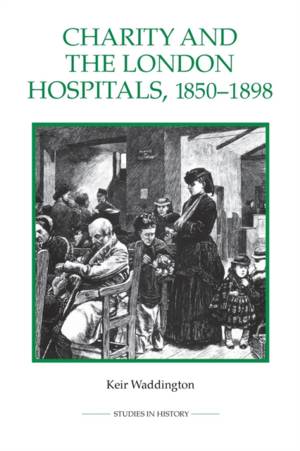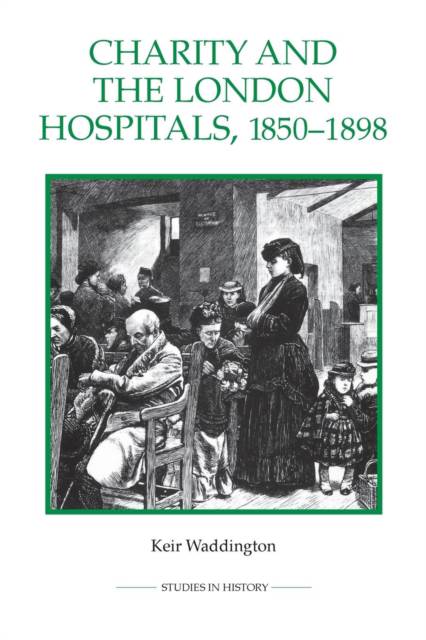
- Afhalen na 1 uur in een winkel met voorraad
- Gratis thuislevering in België vanaf € 30
- Ruim aanbod met 7 miljoen producten
- Afhalen na 1 uur in een winkel met voorraad
- Gratis thuislevering in België vanaf € 30
- Ruim aanbod met 7 miljoen producten
Zoeken
Omschrijving
A study of the development of the hospital as a economic, medical and voluntary institution in the second half of the nineteenth century. By the 1890s Victorians assumed that London's hospitals were facing an endemic financial crisis which was so severe that some feared the state might have to intervene to support an ailing voluntary system: charity both underpinnedLondon's hospitals and proved insufficient to meet the ever-increasing cost of care, despite the ability of those running the hospitals to pick the pockets of the benevolent. Charity and the London Hospitals takes these themes to study the development of the hospital as an economic, medical, and voluntary institution in the second half of the nineteenth century.
Drawing on a comparative study of hospital records, the author investigates how and why Victorians contributed to show that benevolence was rarely amenable to a single form or reason, moving on to argue that though it remained central to the hospitals' raison d'être, philanthropy's contribution was modified at a financial and administrative level as hospitals shifted from being philanthropic to medical institutions. Why this process occurred and the impact of professionalisation and scientific medicine are also assessed, as are the debates surrounding hospitals and the state at the end of the nineteenth century. KEIR WADDINGTON is Professor of History at Cardiff University.
Drawing on a comparative study of hospital records, the author investigates how and why Victorians contributed to show that benevolence was rarely amenable to a single form or reason, moving on to argue that though it remained central to the hospitals' raison d'être, philanthropy's contribution was modified at a financial and administrative level as hospitals shifted from being philanthropic to medical institutions. Why this process occurred and the impact of professionalisation and scientific medicine are also assessed, as are the debates surrounding hospitals and the state at the end of the nineteenth century. KEIR WADDINGTON is Professor of History at Cardiff University.
Specificaties
Betrokkenen
- Auteur(s):
- Uitgeverij:
Inhoud
- Aantal bladzijden:
- 264
- Taal:
- Engels
- Reeks:
- Reeksnummer:
- nr. 16
Eigenschappen
- Productcode (EAN):
- 9780861933310
- Verschijningsdatum:
- 18/06/2015
- Uitvoering:
- Paperback
- Formaat:
- Trade paperback (VS)
- Afmetingen:
- 156 mm x 234 mm
- Gewicht:
- 381 g

Alleen bij Standaard Boekhandel
+ 119 punten op je klantenkaart van Standaard Boekhandel
Beoordelingen
We publiceren alleen reviews die voldoen aan de voorwaarden voor reviews. Bekijk onze voorwaarden voor reviews.







